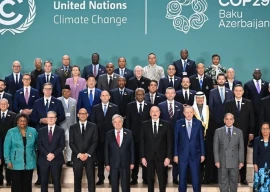
"The Taliban will kill me and my family. I can't stay in Afghanistan," 30-year-old Mohammad Yousaf told AFP.
Yousaf is one of thousands of young Afghan men who learned English from watching American movies and now act as vital intermediaries between international troops and locals in the decade-long war.
They work as interpreters, or "terps" as they are known to foreign troops, in the hope of securing an American visa after at least one year of service.
But they fear that when US and combat troops from other NATO allies withdraw in 2014, they will be targeted by the Taliban.
Many are now racing to get visas and move to the United States before then, although a backlog of paperwork at the American embassy in Kabul threatens to delay applications.
At US Combat Outpost Monti in mountainous Kunar province near the Pakistani border where he lives and works, Yousaf said he was considered an "infidel" by the Taliban and its sympathisers.
"They say the people who work with the Americans should be killed," he said.
As he and his fellow interpreters shared their stories over an Afghan feast of lamb korma, chicken pilau rice and round, flat bread, the risks they take became clear.
"I'm not happy in Afghanistan, it's a dangerous place. Everybody knows that," said Mohammad Islam, a 23-year-old with gelled, spiky hair who wore a tight T-shirt and spoke English peppered with slang.
Another interpreter, Salim Shah, 35, quit his carpet business to work as a translator and now dreams of one day setting up a rug shop in New York.
"If I didn't become an interpreter, it (would be) too difficult to go to foreign countries," he said.
The United States admitted it is grappling with a surge of visa applications from interpreters and other Afghans.
A US government official speaking on condition of anonymity said 850 Afghan interpreters who worked with the US armed forces or the embassy in Kabul had received special immigration visas as of mid-July, the latest figures available.
But under the Afghan Allies Protection Act, passed in 2009 to boost the number of visas for Afghans who have come under serious threat for working for the US government, no visas had been issued and 2,297 cases were pending.
The official said the process was "time intensive" but that efforts were being made to streamline applications.
He confirmed the US embassy in Kabul had received petitions to speed up procedures.
"We recognise that we have a special responsibility to Afghans who have worked for us," he told AFP.
"At the same time we're committed to ensuring that Afghan recipients of special immigration visas, like all those who enter the United States, do not pose a threat to the security of the United States."
He added: "We urge applicants with immediate security concerns to raise such concerns with security personnel where they work."
Yousaf has nearly finished his paperwork but remains unconvinced he will escape Afghanistan within three years.
"Right now there are so many interpreters in Afghanistan trying to get a visa. It's very hard," he shrugged. "It's up to the US government."
He and his colleagues have seen numerous interpreter friends killed or wounded and had plenty of their own close shaves.
During an operation in Kunar last year, the Humvee truck behind Yousaf's vehicle was destroyed by a roadside bomb, killing five US troops inside.
"God saved me," he said.
US troops pay tribute to their courage and competence. One soldier who works with them, Private First Class Joshua MacIntyre, said they had earned the right to a visa. "I trust them," he said. "It's very easy to work with them."
But it is not only out on missions that interpreters feel unsafe.
Although his wife and five children live in the same province, Yousaf said it was too dangerous to go alone by car when he goes home on leave, preferring to fly or travel with the Afghan army.
"Maybe they will kill me or ambush me," he said of the insurgents. He fears even going to the local bazaar close to the outpost, instead asking Afghan labourers on the base to pick up his groceries and favourite chewing tobacco.
The Taliban regularly carry out threats to kill Afghans working with coalition forces, but the interpreters hope their troubles will be worth the risk.
Yousaf likes the sound of California, but has no fixed plans beyond reaching the "golden state."
"America is the land of opportunity, I will find something there," he said.
COMMENTS (7)
Comments are moderated and generally will be posted if they are on-topic and not abusive.
For more information, please see our Comments FAQ

1722586547-0/Untitled-design-(73)1722586547-0-165x106.webp)


1732326457-0/prime-(1)1732326457-0-165x106.webp)




1731325890-0/trump-(24)1731325890-0-270x192.webp)







@san: I want ask you something, what you done to United state of America? More than we done? We been fighting in front line without insurance and really cheap pay 7 $ or less per Hour ! And we are more than 200% better than DoD interpreters. Our ability with knowing the Culture and the way of communication, the Price of the life is A life . And the US passport not worth it trust me If you lost your life . We need our life that we lost and our years that we spent also!
Run for your lives now for helping the enemy (US).
What about US supporters in Pakistan, how can US leave them alone here with stone-age neanderthals who don't wear jeans? They want US visas too and life of questionable morality in USS of A.
just accept it you all want US passport..
USSR would be laughing now!
People working with ISAF do not face such a tremendous threat as these Interpreters are exaggerating. They know that if the US pulls back, they will go unemployed. Even here in Pakistan, if someone meets an American the next question he asks is; "Would you please sponsor my visa to the US?"
@Bangladeshi: Without these Interpreters, things would have been worse for the local people who are even unfamiliar with hand gestures of the foreign troops. The Interprets also act as the cultural advisers for the foreigners and deters the foreigners from committing any kind of cultural abuse such as; entering the mosque, searching women and other western practices considered rude in Afghan culture. Though there is a general perception that the Interpreters work as Intelligence assets or 'Spies', however, it is totally absurd. They only act as a medium between local Afghans and the foreigners.
“We recognise that we have a special responsibility to Afghans who have worked for us,”
So this means the US admitted that after they leave the Taliban will take over & will pose threat to the traitors that collaborated with the US. No matter how anyone looks at it, it is an utter defeat for the US. 10 years of genocide in afganistan & the taliban is still there ready to take over. A standoff between a ragtag group with AK47 VS f22s f35s & the most sofisticated warfare capabilities in the history of mankind.This was inevitable & the USSR knows better then anyone else.